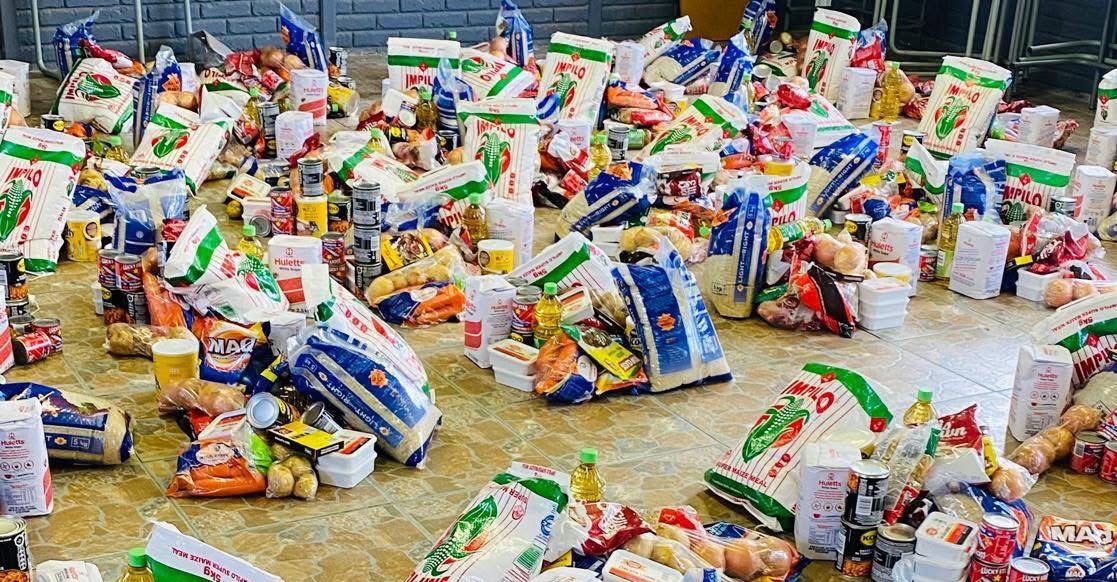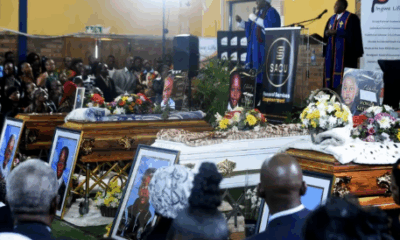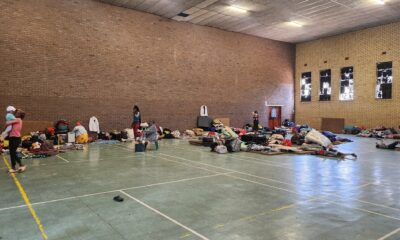News
‘It’s Painful’: NPOs Speak Out as HIV/AIDS Food Parcel Funds Slashed in Gauteng

NPOs warn of hunger, confusion and shutdowns as government funding dries up for life-saving food aid
In Gauteng, non-profit organisations that have long been the backbone of food relief for HIV/AIDS patients are now on the brink reeling from sudden funding cuts and unclear government communication.
The Department of Social Development (DSD) insists it hasn’t centralised food parcel distribution. But the numbers tell another story and the impact is devastating for those on the frontlines of the HIV/AIDS crisis.
The Controversy: Denial Meets Desperation
At the centre of the controversy is a decision that has quietly pulled food parcel funding from Home and Community-Based Care (HCBC) NPOs. These organisations play a vital role in getting food to some of the province’s most vulnerable residents — especially impoverished HIV/AIDS patients who rely on nourishment to safely take anti-retroviral treatment.
The Gauteng Department of Social Development (GDSD) blames budget constraints, saying HCBC groups won’t be funded directly for food parcels in the 2025/26 financial year, but that existing food banks (also run by NPOs) will now supply food centrally.
“There has been a change in modality,” said department spokesperson Motsamai Motlhaolwa. “HCBC organisations will not be provided with an allocation to procure food parcels. However, they would still be able to provide food through food distribution centres.”
But NPOs say this shift was never communicated properly. And now, hunger is rising.
On the Ground: Empty Pantries, Unanswered Calls
At the North Gauteng Mental Health Society, Director Moses Mahlangu said clients come daily expecting food — but his team has no clarity, no new funds, and their electricity was recently cut off due to non-payment.
“They are not giving us straight answers,” he said, pointing out that subsidies expected for this quarter have not been paid in full. “Communication is very important. Our clients are suffering.”
Over at Vhathu Vhothe Abuse Centre, founder Sibongile Nkosi painted an even starker picture.
“We give food parcels so patients don’t take ARVs on an empty stomach. Now we have to turn people away hungry,” she said, holding back emotion. “It’s painful.”
Nkosi also fears that the recent loss of US$400 million (R7 billion) in international HIV/AIDS funding earlier this year is further compounding the crisis.
Political Pushback: ‘Centralising Will Backfire’
The Democratic Alliance’s Gauteng Shadow MEC for Social Development, Refiloe Nt’sekhe, has been ringing alarm bells for weeks. She claims the department is, in effect, centralising food parcel distribution, a move she says will waste money and disrupt local supply chains.
“Centralising food distribution undermines local businesses and increases DSD’s costs,” she argued. “And the department doesn’t even have the logistical capacity to distribute food centrally.”
Nt’sekhe pointed to a 29 May committee meeting where GDSD officials reportedly discussed plans to restructure operations for 288 NPOs and five food banks. “I asked for the address of this supposed centralised food bank. I’m still waiting for an answer,” she said.
The Bigger Picture: A System Under Pressure
This crisis comes at a time when South Africa is battling high unemployment, food insecurity, and a still-lingering economic shock from the pandemic. NPOs are stretched thin and increasingly unsupported, with several already shutting down due to compliance clampdowns or financial strain.
Social media reaction has been swift and unforgiving. Hashtags like #HandsOffFoodParcels and #FeedHIVAIDSPatients trended on X, as residents shared stories of desperation in their communities.
One user wrote:
“My aunt is on ARVs. She hasn’t eaten a full meal in two days. Where is the food bank? Where is the dignity?”
A Call for Transparency and Humanity
While the department says the food parcel distribution network will remain NPO-led, many feel blindsided. What was once a community-driven model of care is being pulled into bureaucracy and lives hang in the balance.
What NPOs are demanding is not just money, but clear communication, respect for their experience, and above all, empathy.
“We’ve done this work for years,” said Mahlangu. “On time. Without fail. Now they treat us like we don’t matter.”
As hunger quietly spreads in the province’s most vulnerable communities, this is no longer just a funding issue. It’s a crisis of care and one that will test the moral spine of Gauteng’s government.
If you or someone you know is affected by the food parcel cuts, contact your local ward councillor or the Gauteng Department of Social Development for assistance.
{Source: The Citizen}
Follow Joburg ETC on Facebook, Twitter , TikTok and Instagram
For more News in Johannesburg, visit joburgetc.com



























